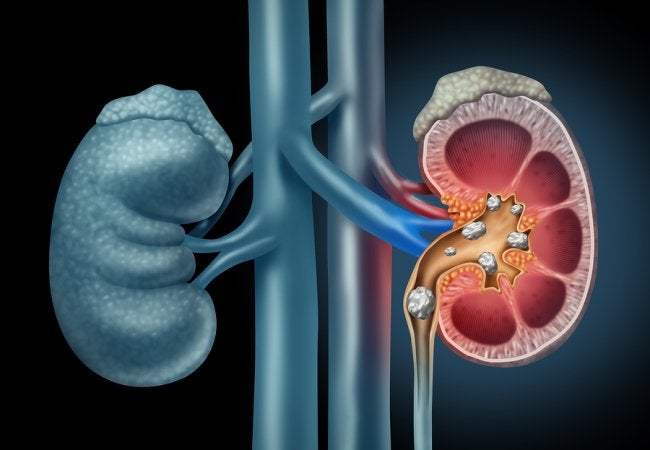-
The Circumcision Decision: Factors for New Parents to Consider

Circumcision is considered by many parents to be a routine procedure for newborn boys, even though it’s usually not medically necessary. For some parents, the choice to circumcise or not is clear, as it’s dictated by religious beliefs. Other parents may wish to speak with a urologist about this decision.
Penile Conditions
Circumcision prevents some medical conditions of the penis, including phimosis. Phimosis is the inability to retract the foreskin. However, it cannot be diagnosed until the boy has reached his first birthday, as most boys are born with the inability to retract the foreskin. Paraphimosis is another condition that is treatable or preventable with circumcision. It is the inability to return the retracted foreskin to the usual position. Untreated paraphimosis can cause blood accumulation, swelling, and severe pain. Although circumcision eliminates the risk of certain problems of the foreskin, it may increase the risk of other health issues. Meatitis is the inflammation of the opening in the penis, and it’s more common among circumcised boys.
Personal Hygiene
Religious and cultural preferences aside, some new parents opt for circumcision simply because it improves cleanliness. Until the boy is old enough to perform this task, the parents must retract the foreskin to clean the penis thoroughly. Once the boy is old enough, he must be relied upon to take care of this task himself, and not all children are known for their diligence.
Urinary Tract Infections (UTIs)
Urologists have found that boys who were circumcised as newborns are far less likely to require UTI treatment compared to uncircumcised boys. New parents who decide not to circumcise their infant do have the option of scheduling a circumcision later if the boy shows a tendency to develop UTIs .
Urologists might recommend this procedure for previously uncircumcised men who experience recurrent medical problems because of the presence of the foreskin. When you become a patient at Urology Associates, P.C., you’ll receive the in-depth guidance you need to make an informed decision. Call any of our twelve offices in Tennessee at (855) 901-1338.
-
Surgical Birth Control for Men
Male birth control is gradually becoming more commonplace. One option is a vasectomy, which is a surgery that a urology specialist can perform. The results should be considered permanent, although a reversal can be successful. When you watch this video, you’ll get some quick facts about vasectomies.
This video explains what happens during the procedure, which can be performed on an outpatient basis at a urology clinic. Afterward, men are advised to wear a jock strap for support, apply ice packs for 20 minutes at a time, and get plenty of rest while they recover.
Vasectomies and vasectomy reversals are two of the many procedures that urologists in Nashville can perform. If you’d like to schedule a Vasectomy consultation with one of our specialists, you can call Urology Associates, P.C. at (855) 901-1338.
-
Don’t Fall for These Myths About Kidney Stones

The minerals and salts in a person’s urine can sometimes crystallize and clump together, forming a kidney stone. Urologists sort kidney stones into categories. Most of them are calcium stones. The other types include struvite, uric acid, and cysteine stones. Regardless of the type of stone you have, there’s no question that this problem can cause excruciating pain. The pain can be enough to drive some patients to try folk remedies, even though the treatment administered by a urologist is proven effective.
Myth: Kidney stone patients should decrease calcium intake.
Calcium is found in the majority of all kidney stones, but urologists do not recommend reducing your calcium intake to prevent them. In fact, some research suggests that lowering your calcium intake may increase your risk of getting kidney stones. Usually, these stones are made from calcium oxalate. Metabolic disorders and intestinal bypass surgery may increase the concentration of calcium oxalate in the urine. Other stones are made from calcium phosphate. Metabolic conditions, such as renal tubular acidosis, can contribute to calcium phosphate stone development. People who get migraines or have seizure disorders may also be more likely to develop these stones.
Myth: Once I’ve had kidney stones, I’m not likely to get them again.
Unfortunately, people who have had kidney stones once are indeed at a higher risk of getting them again. Your urologist can help you learn how to reduce your risk. The following steps can help:
- Drink more water
- Maintain a healthy body weight
- Follow a low-sodium diet
Myth: Drinking olive oil will help pass a stone.
You may have heard that drinking olive oil and lemon juice will help your kidney stone pass faster and with less pain. It’s thought that olive oil can serve as a lubricant. There’s no research to substantiate this folk remedy. However, there are medications that can help you pass the stone, or your urologist may recommend surgical intervention.
Here at Urology Associates, P.C., we understand how painful and uncomfortable kidney stones are. Our urology team in Nashville administers effective treatments with a patient-focused, compassionate approach. Call us at (855) 901-1338 today, and we’ll get you in as soon as possible.
Recent Posts
categories
- Uncategorized
- Bladder Cancer
- Women's Sexual Health
- MonaLisa Touch
- Urology
- Urologist
- Erectile Dysfunction
- Kidney Cancer
- Incontinence
- Prostate
- MonaLisa Touch Laser Treatment
- Kidney Stones
- Urinary Tract Infections
- Event
- Sexual Dysfunction
- Testicular Cancer
- Prostate Cancer
- Urology Surgery Center
- urinary incontinence
- vaginismus
- noncoital pain disorder
- Hypoactive Sexual Desire Disorder
- Infographic
- provenge
- Xofigo
- robotic surgery
- hormone replacement
- diabetes
- renal cell carcinoma
- pelvic pain
- hematuria
- sexual health
- chronic testicular pain
- premature ejaculation
- Men's Health Clinic
- Dr. Melvin Seard
- Interstitial Cystitis
- vasectomy
- overactive bladder
- vaginal atrophy
- nocturia
- bladder infections
- urethral strictures
- Acute Epididymitis
- low sex drive
- circumcision
- pelvic floor dysfunction
- Peyronie's Disease
- prostatitis
- female sexual dysfunction
- varicocele
- difficult urination
- low libido
- PSA levels
- male fertility
- penile prosthesis
- prostatic intraepithelial neoplasia
- male infertility
- estrogen levels
- nurse navigator
- stress urinary incontinence
- vaginal yeast infection
- elevated psa
- painful sex
- adult circumcision
- epididymitis
- OAB
- kidney infection
- penile cancer
- pelvic organ prolapse
- Vasectomy Reversal
- bone health
- cystectomies
- clinical trials
- bloody urine
- Advanced Therapeutic Center
- WISH MedSpa
- neurogenic bladder
- WISH Team
- prostate biopsies
- BPH
- fecal incontinence
- lithotripsy
- osteoporosis
- kidney cysts
